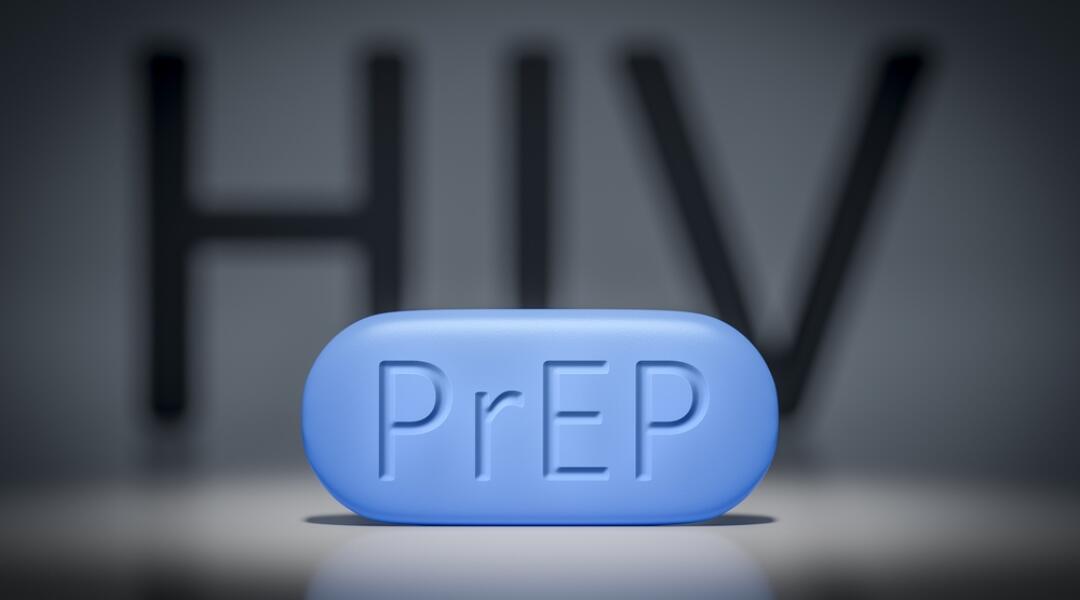HIV: Understanding Prevention, Treatment, and Living a Healthy Life
Living with HIV in the 21st century is a far cry from what it once was. Significant advancements in treatment and prevention strategies have transformed HIV from a life-threatening illness to a manageable condition. This article delves into the world of HIV, exploring both preventative measures like PrEP and the powerful treatment options available today.

Understanding HIV
HIV, or Human Immunodeficiency Virus, attacks the body’s immune system, gradually weakening its ability to fight infections and diseases. Left untreated, HIV can progress to AIDS (Acquired Immunodeficiency Syndrome), a stage characterized by a severely compromised immune system.
How is HIV Transmitted?
HIV is transmitted through bodily fluids, specifically:
- Blood: Sharing needles or syringes used for injecting drugs
- Semen: Unprotected vaginal or anal sex
- Pre-seminal fluid: Contact with pre-seminal fluid during sex
- Breast milk: Mothers with HIV can transmit the virus to their babies through breastfeeding (although there are ways to significantly reduce this risk)
- Vaginal and rectal fluids: Deep kissing or sharing sex toys without proper hygiene
Recognizing Symptoms of HIV
Symptoms of HIV can vary depending on the stage of infection. In the early stages (acute HIV infection), individuals may experience flu-like symptoms such as fever, fatigue, swollen lymph nodes, and sore throat. However, many people don’t experience any noticeable symptoms in the early stages. As the infection progresses, individuals may develop recurrent infections, weight loss, and night sweats.
It’s crucial to understand that the absence of symptoms doesn’t guarantee an HIV-negative status. The only way to be certain is to get tested.
HIV Prevention: Your Shield Against Infection
Fortunately, there are effective strategies to prevent HIV infection:
- Safe Sex: Consistent and correct use of condoms significantly reduces the risk of HIV transmission during vaginal and anal sex. Condoms also help prevent other sexually transmitted infections (STIs).
- PrEP (Pre-Exposure Prophylaxis): This medication, when taken as prescribed, can dramatically reduce the risk of acquiring HIV from sex or injection drug use. PrEP is highly effective when taken consistently, with a success rate of over 99% for sex and at least 74% for injection drug use.
- PEP (Post-Exposure Prophylaxis): This medication is used in emergency situations where someone may have been recently exposed to HIV. PEP needs to be started within 72 hours of potential exposure to be most effective.
Understanding PrEP: How it Works and Who Can Benefit
PrEP, or Pre-Exposure Prophylaxis, is a medication regimen that helps prevent HIV infection. There are currently three FDA-approved medications for PrEP:
- Truvada (emtricitabine/tenofovir disoproxil fumarate): This is the most commonly used PrEP medication and is effective for people at risk of HIV through sex or injection drug use.
- Descovy (emtricitabine/tenofovir alafenamide): This medication is approved for people at risk of HIV through sex but is not recommended for those assigned female at birth who are at risk for HIV through receptive vaginal sex.
- Apretude (cabotegravir): This is a long-acting injectable form of PrEP administered every two months.
PrEP is a powerful prevention tool, but it’s vital to understand that it doesn’t protect against other STIs. Consistent condom use is still recommended for comprehensive sexual health.
Who can benefit from PrEP?
PrEP is a safe and effective option for anyone at substantial risk of acquiring HIV. This includes individuals who:
- Have a partner living with HIV
- Engage in condomless sex with multiple partners
- Have a partner who is unwilling or unable to use condoms consistently
- Inject drugs
Consulting a healthcare provider is essential to determine if PrEP is the right choice for you.
HIV Treatment: Powerful Options for a Healthy Life

The landscape of HIV treatment has undergone a revolution in recent years. Highly Active Antiretroviral Therapy (HAART) is a combination of medications that effectively suppress the HIV virus, preventing it from replicating and keeping the immune system healthy.
Benefits of HIV Treatment:
- Improved health: HAART significantly reduces the risk of developing opportunistic infections and other complications associated with HIV.
- Increased life expectancy: With consistent treatment, people living with HIV can expect to live a long and healthy life.
- Reduced risk of transmission: When the HIV viral load is undetectable in the blood thanks to effective treatment, the risk
How Does HIV Treatment Work?
HAART works by targeting different stages of the HIV replication cycle with various medications. These medications fall into several categories:
- Nucleoside Reverse Transcriptase Inhibitors (NRTIs): These drugs prevent the virus from converting its genetic material (RNA) into DNA, a crucial step for HIV to replicate.
- Non-Nucleoside Reverse Transcriptase Inhibitors (NNRTIs): Similar to NRTIs, NNRTIs also block the virus’s ability to convert RNA to DNA but act at a different stage of the process.
- Integrase Strand Transfer Inhibitors (INSTIs): These medications prevent the viral DNA from integrating into the human DNA, hindering the virus’s ability to produce new copies of itself.
- Protease Inhibitors (PIs): PIs block an enzyme called protease, which the virus needs to mature and become infectious.
HIV treatment regimens typically involve a combination of medications from different classes to maximize effectiveness and prevent the virus from developing resistance.
What to Expect When Starting HIV Treatment
If you’re diagnosed with HIV, your healthcare provider will work with you to develop a personalized treatment plan. This plan will consider your overall health, medical history, and any potential drug interactions.
Here’s a general overview of what to expect:
- Initial consultation: Your doctor will discuss your medical history, sexual behavior, and risk factors. They will also likely perform a physical exam and order blood tests to assess your overall health and current HIV stage.
- Blood tests: Regular blood tests are crucial for monitoring your viral load (the amount of HIV in your blood) and CD4 cell count (a type of white blood cell essential for immune function). These tests help your doctor assess the effectiveness of your treatment and make adjustments if needed.
- Medication adherence: Taking your medications consistently and exactly as prescribed is critical for successful treatment. Missing doses can allow the virus to develop resistance to the medications. Your doctor will discuss strategies to help you adhere to your treatment plan.
- Side effects: Some medications used in HAART can cause side effects. These effects vary depending on the medications used and can include nausea, fatigue, headache, and diarrhea. Most side effects are mild and manageable, and your doctor can help you find ways to minimize them.
Living with HIV involves regular doctor visits and ongoing treatment, but with proper care and adherence, individuals with HIV can live long and fulfilling lives.
Living Well with HIV
A diagnosis of HIV doesn’t have to define your life. With effective treatment and a healthy lifestyle, you can manage your condition and maintain good health. Here are some tips for living well with HIV:
- Maintain a healthy diet: Eating a balanced diet rich in fruits, vegetables, and whole grains provides your body with the nutrients it needs to fight infections and stay healthy.
- Regular exercise: Aim for at least 30 minutes of moderate-intensity exercise most days of the week. Physical activity strengthens your immune system and improves overall well-being.
- Get enough sleep: Aim for 7-8 hours of sleep each night. Adequate sleep allows your body to rest and repair itself.
- Manage stress: Chronic stress can weaken your immune system. Find healthy ways to manage stress, such as yoga, meditation, or spending time in nature.
- Don’t smoke: Smoking weakens the immune system and increases the risk of complications associated with HIV. Quitting smoking is one of the best things you can do for your health.
- Reduce alcohol consumption: Excessive alcohol consumption can also weaken the immune system and interfere with medication effectiveness.
- Stay connected with loved ones: Having a strong support system is crucial for emotional well-being. Surround yourself with positive and supportive people.
- Mental health is important: Living with a chronic illness can take a toll on mental health. Don’t hesitate to seek professional help for anxiety, depression, or other mental health concerns.
Remember, you are not alone. There are many resources and support groups available for people living with HIV. Talking to a healthcare professional or joining a support group can be incredibly helpful.
